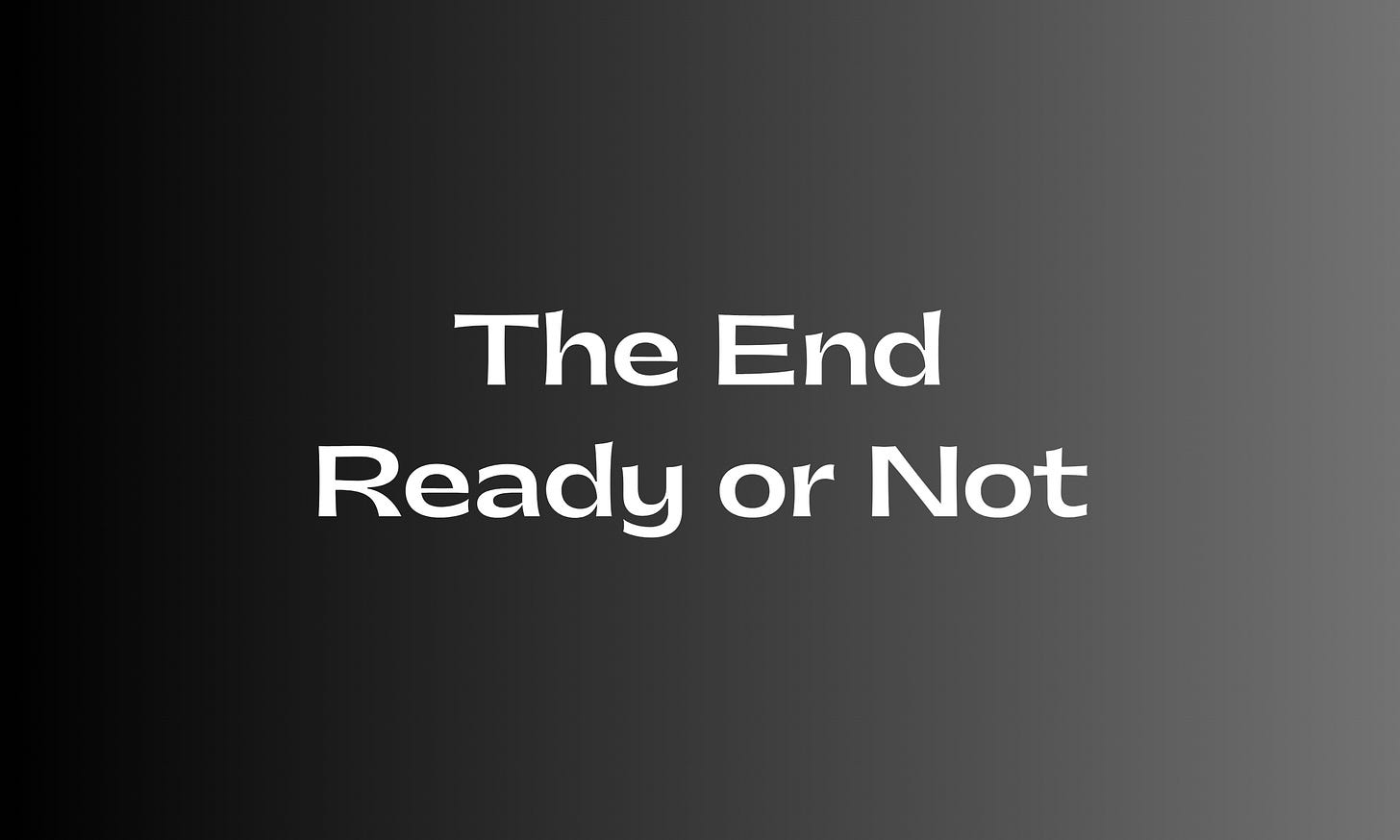We don’t always foresee when the last of something we value will no longer be available to us and when that eventually comes into view and experience, it can be startling, painful and traumatic. We may or may not ever fully recover.
This thought was triggered while reading The Last, an article in Kris Pavek’s Substack newsletter. “The lasts are not anticipated. They blindside, the realization is delayed, sometimes for years.”
It’s true. Sometimes they come without warning. Other times, the signs were there yet we ignored them. Regardless, we can feel powerfully blindsided and left hurt for years, possibly, the rest of our lives. I’m going somewhere with this so stay with me a bit.
“These memories, the ones that can shatter us; they are sneaky,’ Pavek wrote, writing about the immediate or now painful, depressing endings.
Thinking back on our lives, there may be those memories. We work through most of them, developing acceptance. Some loss, however, we mightily struggle to accept, psychologically and emotionally.
Pavek then communicated what we can work hard to remember and that is the, “Unknowing. It was a blessing; the not knowing."
There are situations where most of us would likely agree about the benefit of “not knowing” what we are experiencing or have just experienced will be “the last” of something that has brought us great happiness, joy and peace.
Yet, there are also experiences where we’d certainly prefer to know that a moment might be the very “last” time we’re going to have some meaningful time with it or someone in our lives.
Then, there can be “lasts” because our decision making and actions were damaging to how people look at and judge us and we relinquish credibility, trust and the good that comes with that combination. Thus, “last” just happened and we didn’t know it and it was our own doing.
And it hurts, deeply.
There is disappointment, sadness and a harsh reality in learning that we can’t escape all the “lasts” in life. It’s encouraging to know, however, that some can be prevented.
To that end, it’s helpful to consider the reasonableness and quality of our thinking, impulses and actions through the act of forward-thinking as a form of personal risk management so that we can prevent, as much as possible, self-inflicted “lasts” that we will come to rue.
Creating a safeguard outside of ourselves, whether that be a family member, trusted friend or professional, to bounce our intentions off and talk to us honestly, can go a long way towards lessening the likelihood that we badly err and lose what we appreciate, want, love and need.
Michael Toebe is the specialist at Reputation Intelligence, helping individuals and organizations with matters of credibility, trust, decision analysis, communications, relationships and reputation.
You can DM him on Substack or contact him below for consulting, risk analysis, coaching, ongoing advisory, a variety of proactive and responsive communications and reputation (not legal) representation.
Be sure to take a look at the Reputation Intelligence guides and services for sale. If subscribing to this newsletter is of interest to you or someone you know, please click the “subscribe now” button to see the choices.









Yes to all of this, Michael. The line between grace and regret can be paper-thin, and so often we only see it in hindsight. I love the emphasis on thoughtful safeguards. Sometimes it’s about having honest mirrors around us when our own lens is fogged.
PS, now that I have your full name, I gave you a follow on LinkedIn. I am a stalker hahahahaha
I am not there a whole lot, but I will check in when I am.
Enjoy your evening :)